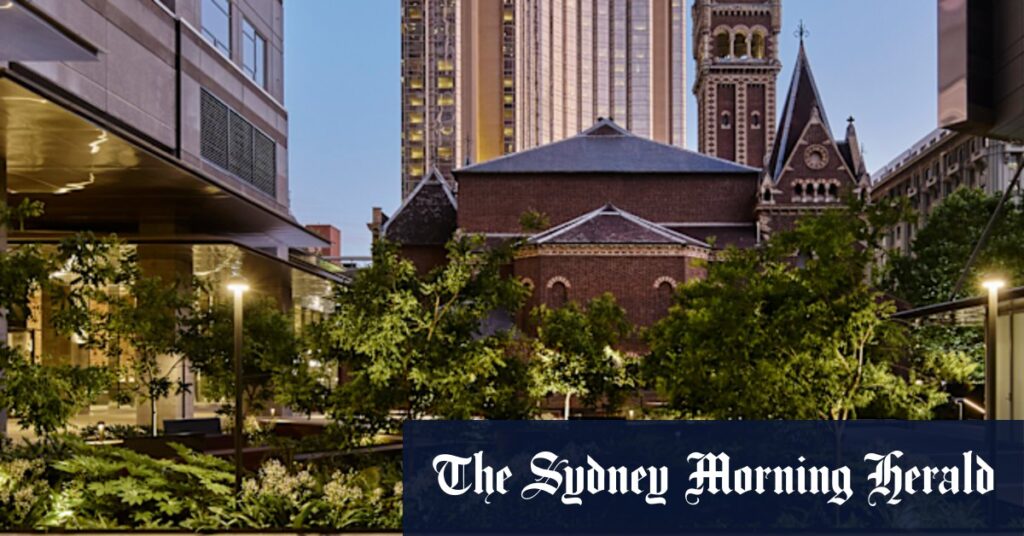The small green space in the courtyard of 120 Collins Street is vibrant and leafy. It seems to go unnoticed by most commuters as they walk by. But it’s just picked up a prize at the Australian Institute of Landscape Architecture’s (AILA) Victorian awards.
The 120 Collins Street refurbishment project has won a small projects prize. Credit: Peter Bennetts
“It’s a really beautiful garden. Really dense and lush, and it’s not necessarily something you find in the city all the time. So it’s offering a really different experience to the public,” said AILA Victoria’s jury chair and landscape architect Bridget Keane.
Other projects that received accolades at Thursday night’s ceremony included Richmond High School, Deer Park Station and the redevelopment of Ballarat’s Bridge Mall. But Keane and the other judges were impressed with the efficient use of the site’s small 310-square-metre space.
It includes a range of indigenous and exotic plants, chosen with the help of staff at the Royal Botanic Gardens. There’s also plenty of seating, as well as a smaller rooftop garden on an upper level that acts as a viewing space.
Loading
“We have Treasury Gardens and other gardens surrounding the city … But this shows us how within this type of … podium environment, we can really have an amazing contribution to green space,” Keane said. “[It’s] acknowledging how much can be packed into a small place and how many different things it can do.”
Susie Quinton, the principal landscape architect at Hassell, the company that designed the garden, called it an oasis that looks to offer refuge to those in the CBD. In a recent international survey of more than 2500 office workers, Hassell found the most valued amenities were green spaces and fresh air.
“We know the healthcare benefits of landscape and greenery,” Quinton said. “It’s so important for workers and the public to have that opportunity within the really formalised, structural grid of Melbourne.
“It doesn’t take much. The green space [at 120 Collins] is not big, but it really challenges green infrastructure and small spaces, and that public realm to work harder,” she said.
Read the full article here


